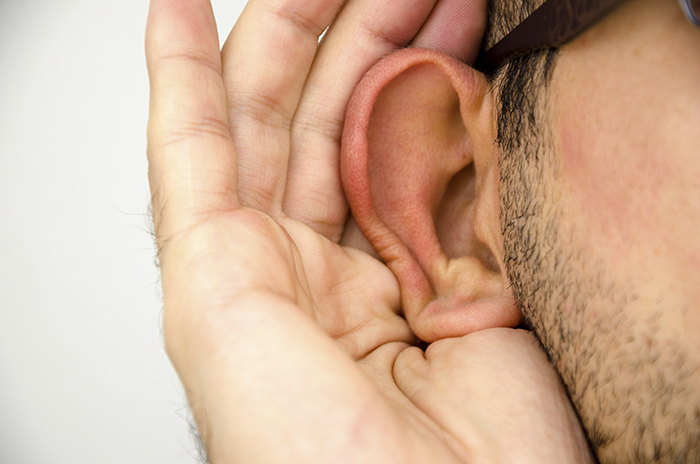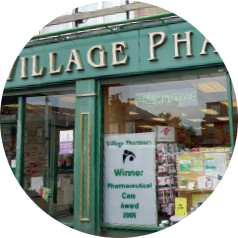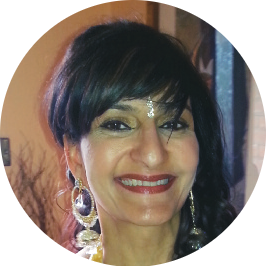Hear and now
In OTC
Follow this topic
Bookmark
Record learning outcomes
With record numbers of people being diagnosed with hearing loss, pharmacists are in an ideal position to advise patients about aural health

In November 2015, Action on Hearing Loss reported that hearing loss is a major public health issue in the UK, now affecting more than 11 million people. And it's estimated that by 2035 it will affect more than 15.6 million people in the UK €“ a fifth of the population. According to the charity's Hearing Matters report, urgent action is needed to improve the diagnosis of hearing loss, and to encourage more people to wear hearing aids if they require them.
In the Annual Health Survey for England 2014 report, which was published in December 2015, 18 per cent of adults reported hearing difficulties. Yet only 5 per cent of those surveyed said they used a hearing aid. More than two in five adults reporting great hearing difficulties had never used a hearing aid at all, while around one in 10 of this group had used them in the past but was not currently using them.
Hearing aids are most effective when they are fitted early on, but evidence shows that there is an average of a 10-year delay in people seeking help. And when people eventually do seek help, GPs fail to refer 45 per cent of those reporting hearing loss to NHS hearing services. With proposed cuts to NHS hearing loss services in some parts of the country, there are fears that the issue could escalate.
So could community pharmacies help to address the poor diagnosis rate? According to Sultan €Sid€ Dajani, independent community pharmacist and member of the RPS English Pharmacy Board, there are huge opportunities for pharmacies in aural health.
€Many of the multiples are moving into audiology, and independent pharmacies could soon follow,€ he says. €Pharmacies already stock disability aids, which can help to identify suitable patients, and pharmacists could use their consultation room for an audiologist on one or two days each week. Hearing checks in the pharmacy can provide additional revenue, as well as a useful service for customers.€
Improving access
According to the 2013 Access All Areas report by Action on Hearing Loss, it's becoming increasingly common for health advice to be delivered outside a GP setting, including through pharmacies. Private consultation rooms in the pharmacy are important for patient confidentiality, but can also aid communication by reducing background noise. The report concluded that pharmacists should ensure that private rooms are available for patient consultations, extend the use of technology that can help improve the patient experience for people with hearing loss, such as induction loop or infrared systems, and provide deaf awareness training for all staff who come into contact with patients.
Louise Hart, senior audiologist at Action on Hearing Loss, says people often visit a pharmacy more regularly than their GP and this is why pharmacists have an important role to play. €Local pharmacists often know the characteristics of their local population and their customers/clients well,€ she says.
€They are seen as very trustworthy and their advice is valued. So they may be able to encourage people to get their hearing checked or even volunteer to have a local audiologist do a screening event. Information stands with pamphlets on hearing loss and ear issues would be helpful too, and in some more remote areas, the pharmacy could become a place where people can collect their hearing aid batteries from their local health service. Pharmacists can get more involved by understanding who the local providers of hearing services are and having good links with them, so that if a person's hearing changes or they are having issues, they can be encouraged to return to, or see, an audiologist.€
One in 10 adults across the UK suffers from tinnitus, which can affect people of all ages and may develop after exposure to loud noise. According to Ms Hart, people with tinnitus symptoms may be more comfortable asking a pharmacist for advice rather than a GP. €A pharmacist may be the first access point, so it's important that they can put that person at ease, provide information and refer them onwards for support,€ she says. €They may even be able to stock or suggest products such as a sound relaxer, which is also available through the Action on Hearing Loss website.
Pharmacy advice
Mr Dajani believes aural health involves three main issues from a pharmacy point of view. €It's all about cleanliness, ear health and correct diagnosis,€ he says. €When a customer asks for products for their ears, I always check what the underlying problem is and that they don't have a sinus problem instead. Sinusitis is a common cause of ear pain, and I often end up selling decongestants rather than products for the ear itself.€
According to Care, whose Olive Oil Eardrops can be used to soften ear wax, one in 10 parents admits they have accidentally lodged a cotton bud in their child's ear. Pushing too hard with the cotton bud can, in some cases, lead to superimpacted wax and even a perforated eardrum. €Ear wax is another issue that people often ask about and I always tell customers they shouldn't stick anything in their ear,€ says Mr Dajani. €I recommend they use olive oil for five to seven days, followed by ear syringing. I now perform this myself in the pharmacy, which saves customers visiting their GP surgery. But obviously if I feel there is an actual hearing issue, or a problem with the ears themselves, I would always refer someone to their GP for advice.€
Many people with hearing loss don't realise they have a problem. They may just think their family members talk quietly or television programmes are not as clear as they used to be. Although hearing loss can be associated with getting older, it can also be triggered by noise damage, general health (for example, even wellmanaged diabetes) and family history.
Mr Dajani says that pharmacists are ideally placed to advise customers about appropriate ear protection. €I stock professional noiseprotection ear muffs, particularly for workmen,€ he says. €Tinnitus is a growing issue, yet it can often be prevented easily with the right products.€
The growing problem of tinnitus
The auditory issue tinnitus, the perception of sound in the ears, affects about one in 10 people in the UK. Hearing can be damaged by loud noise, such as that experienced in noisy pubs, clubs and gigs or in the workplace.
Support is available from the British Tinnitus Association (BTA) via the helpline 0800 018 0527 and the website.
The BTA has recently launched the Plug'em campaign, about the need to protect hearing at clubs, gigs and festivals. Music producer Mark Ronson is ambassador for the campaign and says he has had tinnitus for 10 years that affects him €24/7€.
This month, the organisation has released a charity album, I Am The One In Ten. Every track on the album has been donated by an artist who lives with tinnitus and each person involved in the stages of the project is affected by the condition. Artists involved include Coldplay, Black Eyed Peas, DJ Fresh, Embrace and Enter Shikari. The album's title refers to the number of people in the UK living with tinnitus. Find out more at tinnitus.org.uk and plugem.co.uk.
Pharmacists could use their consultation room for an audiologist on one or two days each week. Hearing checks in the pharmacy can provide additional revenue, as well as a useful service for customers
Comment
 Rena Dadra, Village Pharmacy, Harlington €We have a couple of schools down the road and so have quite a few children and parents coming in to the pharmacy complaining of ear problems or infection. It's really important to distinguish between a blocked ear or an infection and both can be as painful. Obviously, it's important to spot the right symptoms to offer the right product, and they might have to go to the doctor if it's an ear infection. We seemed to have a lot of customers coming in with earaches over the recent half term. Our best sellers at the moment are Ear Calm and sterile olive oil for blocked ears. We've included more of the other ear products on the back wall with the P ranges to give people a choice. It does frustrate me in the category because there isn't much training, especially on the children's side.€
Rena Dadra, Village Pharmacy, Harlington €We have a couple of schools down the road and so have quite a few children and parents coming in to the pharmacy complaining of ear problems or infection. It's really important to distinguish between a blocked ear or an infection and both can be as painful. Obviously, it's important to spot the right symptoms to offer the right product, and they might have to go to the doctor if it's an ear infection. We seemed to have a lot of customers coming in with earaches over the recent half term. Our best sellers at the moment are Ear Calm and sterile olive oil for blocked ears. We've included more of the other ear products on the back wall with the P ranges to give people a choice. It does frustrate me in the category because there isn't much training, especially on the children's side.€
 Shaheen Bhatia, P&S Chemist, Ilford €This is an important category for pharmacy; the ears are prone to infection, as well as pressure problems from flying and swimming, tinnitus, and so on. Many people have blocked ears after a cold and they aren't really sure what the problem is or how to treat it. So you have to assess the symptoms and give the right advice on the best course of treatment. Ear Calm is one of our best sellers. Olive oil is one that we suggest because we know we're not doing any further harm €“ it's a very good wax softener for children because there aren't any chemicals in it and we see it prescribed quite a bit. Parents also ask about earplugs for swimming and things like that. People don't go to supermarkets for these type of products because they want the advice on which one to use and how they can best treat their problem.€
Shaheen Bhatia, P&S Chemist, Ilford €This is an important category for pharmacy; the ears are prone to infection, as well as pressure problems from flying and swimming, tinnitus, and so on. Many people have blocked ears after a cold and they aren't really sure what the problem is or how to treat it. So you have to assess the symptoms and give the right advice on the best course of treatment. Ear Calm is one of our best sellers. Olive oil is one that we suggest because we know we're not doing any further harm €“ it's a very good wax softener for children because there aren't any chemicals in it and we see it prescribed quite a bit. Parents also ask about earplugs for swimming and things like that. People don't go to supermarkets for these type of products because they want the advice on which one to use and how they can best treat their problem.€
 Reena Barai, SG Barai Pharmacy, Sutton €We only have two real categories in ear health: minor ear infections, for which we carry the Ear Calm spray, and then it's wax. With the wax category we've got a lot of products we can choose from now. If a customer is going to have their ears syringed we'd recommend a softener before the procedure. If not, then they need a product to help remove the excess wax. Ear Calm has really helped us because when people come in with minor ear infections, which are usually viral, we now have something to give them. Diagnosis is key: is it ear wax, congestion or is it an ear infection?€
Reena Barai, SG Barai Pharmacy, Sutton €We only have two real categories in ear health: minor ear infections, for which we carry the Ear Calm spray, and then it's wax. With the wax category we've got a lot of products we can choose from now. If a customer is going to have their ears syringed we'd recommend a softener before the procedure. If not, then they need a product to help remove the excess wax. Ear Calm has really helped us because when people come in with minor ear infections, which are usually viral, we now have something to give them. Diagnosis is key: is it ear wax, congestion or is it an ear infection?€
